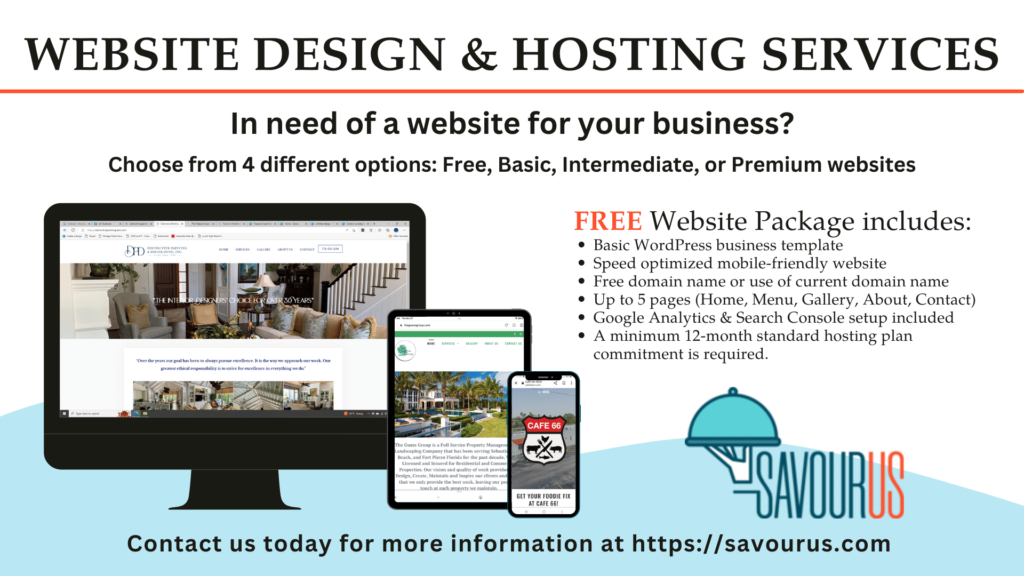Mandatory pages for a website are Home, About Us, Services, Contact, and Privacy Policy pages. These are essential for providing information and building trust with visitors.
In the digital age, having a strong online presence is crucial for businesses to thrive. One key element of this is a well-structured website. When creating a website, it is important to have certain pages that serve specific purposes and cater to the needs of visitors.
These mandatory pages not only enhance user experience but also help in establishing credibility and trust. We will discuss the essential pages that every website should have and why they are important for the overall success of the site.

Credit: savourus.com
Importance Of Mandatory Pages
Having mandatory pages on your website is crucial for several reasons. Firstly, it builds credibility. Visitors to your website will see that you have taken the time to create essential pages such as About Us, Contact Us, and Privacy Policy, which shows that you are a legitimate business.
Secondly, mandatory pages enhance user experience. These pages provide valuable information and make it easier for visitors to navigate and find what they are looking for. The About Us page, for example, allows visitors to gain insights into your brand and understand your mission and values.
In addition, having a Privacy Policy page is essential for complying with data protection regulations and reassuring visitors that their personal information will be handled securely.
By including mandatory pages on your website, you not only establish credibility but also improve the user experience, leading to higher engagement and conversions.
Homepage
|
Homepage is the first page visitors see. It is crucial for making a good impression. Introduction to the Website helps visitors understand its purpose and what it offers. Overview of the Website’s Offerings highlights key features and services provided. It sets the tone for the visitor’s browsing experience.Include clear navigation and call-to-action buttons to guide visitors. Engage visitors with compelling visuals and content. Make sure the Homepage is responsive and loads quickly. It’s the gateway to your site and should be well-designed and user-friendly. |
About Us
|
Our About Us page gives a glimpse into our history and background. |
|
At the core of our brand are our mission and values that guide us. |
Contact
A contact page is a crucial part of any website, ensuring easy communication with visitors. It provides essential details for reaching out, such as email addresses, phone numbers, and physical addresses. Additionally, contact forms can be used for direct messages and inquiries.
| Contact Information | Form for Inquiry |
| Include contact details like phone number, email, and address. | Embed a contact form on the page for visitors to submit queries. |
| Make sure information is accurate and updated regularly. | Design the form to be user-friendly for better engagement. |
Services
Services: The services page should include a description of offered services which clearly outlines what the business provides. This can include a breakdown of each service, how it benefits the customer, and any additional information they may need. Pricing and packages can be another important aspect to include to give potential customers an idea of what to expect in terms of cost. This can be displayed in a clear and concise manner, outlining the different packages available and their respective prices. It’s important to make this information as transparent as possible to build trust with the audience.
Products
A website should include certain mandatory pages to provide essential information to visitors. One crucial page is the “Products” page, which allows visitors to explore the offerings of a business or organization. Under the “Products” page, a subheading called “Product Catalog” can be used to provide an overview of the available products. This section can include detailed descriptions, images, and specifications of each product. By presenting this information, visitors can easily understand the features and benefits of the products offered. It is important to organize the product information in a user-friendly manner, such as using bullet points or a table to provide a clear outline of the products and their details. Overall, including a comprehensive “Products” page on your website helps showcase your offerings and engage potential customers.
Faq
Learn about the essential pages required for a website, including Home, About, Services, Contact, and Blog. These pages help establish credibility, provide information, showcase offerings, and increase user engagement. Having these mandatory pages is crucial for a well-rounded website that meets users’ needs and enhances online presence.
Frequently Asked Questions
A website should have certain mandatory pages to ensure optimal user experience and comply with industry standards. Here are the most commonly required pages:
| Page Name | Purpose |
|---|---|
| Home | The main landing page where visitors get an overview of the website’s content. |
| About Us | Provides information about the website owner, the company or individuals behind it, their mission, and background. |
| Contact | Allows website visitors to get in touch with the website owner or the support team. |
| Services/Products | Displays details about the offered services or products, including pricing, features, and benefits. |
| Testimonials | Showcases positive comments and reviews from satisfied customers, helping build trust and credibility. |
| FAQ | Addresses common questions and provides answers, reducing the need for direct customer support. |
| Privacy Policy | Explains how the website collects, uses, and protects user information, complying with privacy laws. |
| Terms and Conditions | Outlines the legal agreement between the website and its users concerning the usage of the site, products, or services. |
By including these mandatory pages, a website can enhance user engagement, establish credibility, and ensure compliance with legal requirements. It is important to suitably design and optimize these pages to effectively convey information and meet the needs of website visitors.

Credit: themeforest.net
Testimonials
Testimonials: Customer feedback and reviews play a crucial role in establishing trust and credibility for a website. Testimonials from satisfied clients provide social proof and reassure potential customers about the quality of products or services offered. Having a dedicated testimonials page helps in showcasing the positive experiences of previous clients, which can influence the purchasing decisions of new visitors.
Terms And Conditions
Ensure your website includes mandated pages like Terms and Conditions to protect your business legally. These pages establish guidelines for users and safeguard your online presence.
| Terms and Conditions |
| Legal Information |
| User Agreement and Policies should be clear and prominently displayed on your website. |

Credit: www.figma.com
Frequently Asked Questions
What Are The Basic Needs For A Website?
The basic needs for a website include a user-friendly design, engaging content, fast loading speed, mobile responsiveness, and effective SEO integration. These elements are crucial for attracting and retaining visitors, improving search engine rankings, and achieving online success.
Which Pages Are A Must In A Website?
The must-have pages for a website include a homepage, about us, services or products, contact us, and a blog or news section. These pages provide essential information about your business, its offerings, and a way for visitors to get in touch.
What Legal Pages Does A Website Need?
A website needs several legal pages to stay compliant. These include a Privacy Policy, Terms and Conditions, and Disclaimer. These pages inform visitors about their rights, how their data is collected and used, the rules of using the website, and disclaimers of liability.
Ensuring these pages are in place helps protect both the website owner and the user.
How Many Pages Do You Need For A Website?
The number of pages needed for a website depends on its complexity and content. Generally, a small business site may have 5-10 pages, while an e-commerce or large corporation may require 20+ pages for products and services. It’s important to prioritize quality over quantity for a better user experience and SEO.
Conclusion
To ensure a comprehensive website, include essential pages like About, Contact, Services, and Privacy Policy. Providing intuitive navigation and valuable content is crucial for user experience and SEO ranking. Remember, quality over quantity is key when designing your website for success.
Keep it simple yet informative for maximum impact.


